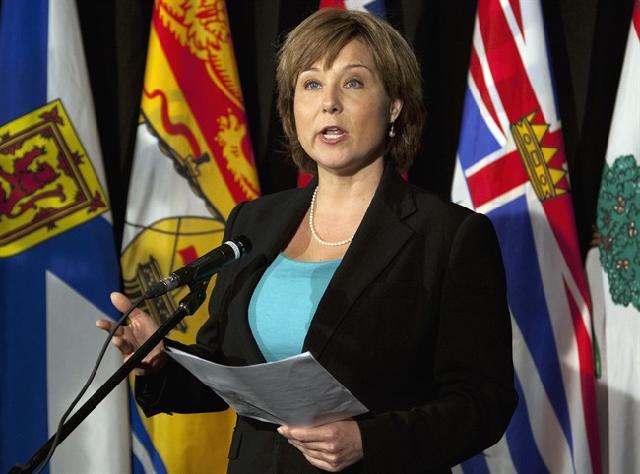Rules that force female staff to wear heels may soon be a thing of the past after B.C. Premier Christy Clark got behind the cause.

Uniform policies which force female staff to wear high heels may soon be a thing of the past after legislation addressing the issue garnered public support from one of Canada’s top politicians.
“In some workplaces in B.C., women are still required to wear high heels on the job,'' said British Columbia Premier Christy Clark. “This isn't just old-fashioned; in 2017, it's unacceptable.”
Clark’s comments come after Green party leader Andrew Weaver introduced a new bill which would make it illegal for businesses to enforce footwear requirements based on gender.
“It's a no brainer,” Weaver said after proposing the law change. “I can't think of a compelling argument anywhere to say restaurant owners should be allowed to require women to wear high heels in a restaurant. It just doesn't make sense.”
While it’s unclear if Clark will bring in separate legislation or back Weaver’s, the issue is certainly one which multiple parties are keen to address.
“I literally can't find anyone who opposes this,” said Weaver. “By and large, people don't realize this is still a thing in 2017.”
If the bill is successful, heels won’t be banned from workplaces but any employer requiring staff to wear them must have the same rules for both men and women.
“You can have a dress code, but the dress code must apply to all,” Weaver explained.








